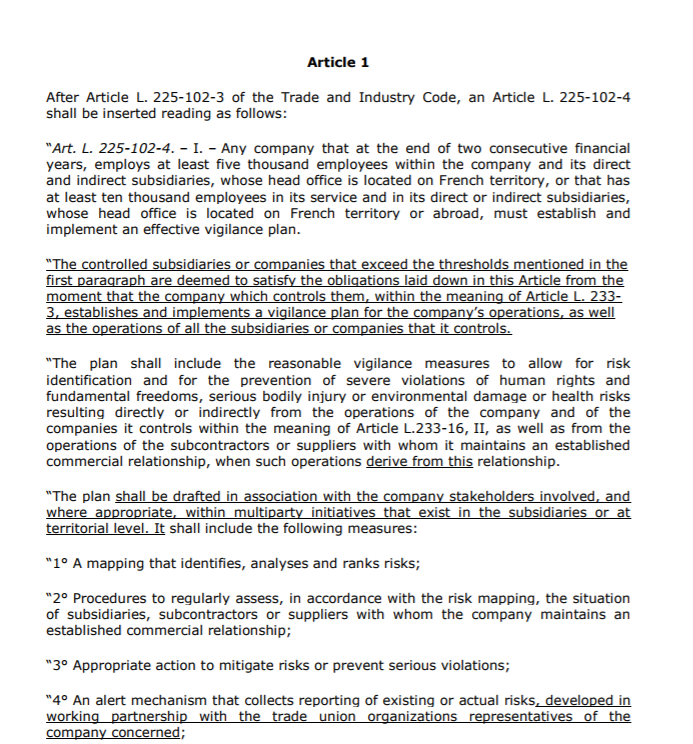In 2017 the French Parliament adopted the Corporate Duty of Vigilance Law.
The law, which only applies to the largest French companies, will make the latter assess and address the adverse impacts of their activities on people and the planet, by having them publish annual, public vigilance plans. This includes impacts linked to their own activities, those of companies under their control, and those of suppliers and subcontractors, with whom they have an established commercial relationship.
When companies default on these obligations, the law empowers victims and other concerned parties to bring the issue before a judge. Judges can apply fines of up to € 10 million when companies fail to publish plans. Fines can go up to € 30 million if this failure resulted in damages that would otherwise have been preventable.
An English translation of the law, as well as an FAQ by the European Coalition of Corporate Justice are available for download below.


